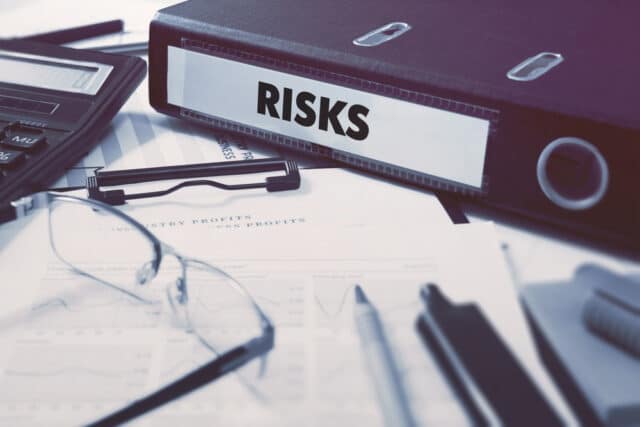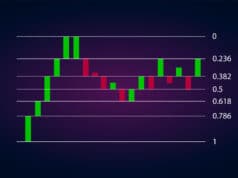Overtrading is one of the riskiest things that many new traders do. In my many years of forex trading and education, I have seen many excellent traders who fail simply by opening tens of trades per day. In this article, we will look at what overtrading is, the risks involved, and some of the best strategies to use to avoid it.
What is overtrading?
Overtrading is the process of opening and closing too many trades per day. This practice is also known as churning.
While the practice is most common among new traders, it is also widely practiced by many experienced professionals who use the scalping strategy. Scalping is a trading strategy that involves buying and selling financial assets within a few minutes with a small profit. The goal of scalping is to make many small profits every day.
The opposite of overtrading is known as undertrading. It is the process of opening less than the desired number of trades. Many traders undetrade mostly because of fear that more trades will lead to losses. While undertrading is risky, the risks associated with overtrading are more.
Why is overtrading risky?
Below are several risks associated with overtrading.
It is expensive
While most forex brokers don’t charge a commission, they make money through the spread. Spread is the difference between the bid and ask prices. In most cases, especially in a low-volatile environment, this spread is usually relatively small. However, at times, the spread can lead to substantial costs of trading. As such, when you open too many trades, it means that you are losing money through this spread.
Many traders overtrade for several reasons, including greed and excitement. Due to these emotions, a trader will be incentivized to open more trades when they have several winning trades.
Further, brokers make money when you leave your trades open overnight. These costs are known as swaps. Therefore, if you open too many trades and leave them open overnight, you will incur more swap costs.
Correlation
Many currency pairs have a close correlation. For example, in most cases, pairs like USD/ZAR and EUR/ZAR have a close correlation, meaning that they often move in the same direction. Therefore, at times, you can open too many trades of perfectly correlated assets, which will lead to more losses.
For example, if you open a buy trade on the USD/ZAR, GBP/ZAR, and EUR/ZAR at once, there is a possibility that you will lose money in all of the three positions if ZAR starts gaining strength. As such, if you were to open multiple trades at once, it is important that you consider how the pairs are correlated.
Impulse trading
The next risk for overtrading is impulse trading. This is where you open a trade without doing some research. For example, you might see a parabolic jump on the EUR/USD pair and decide to buy the pair even without doing some logical reasons. While such a trade can work, at times, it will lead to substantial losses. To avoid it, you need to work on your trading psychology.
Attention
As a trader, it is important that you have close attention to your ongoing trades. As such, when you open too many trades at once, it will be relatively difficult to monitor them at once.
Unresearched trades
Technical, fundamental, and price action trading strategies are important concepts in day trading. Most successful day traders spend a lot of time doing the three before they open a single trade. Therefore, when you overtrade, there is a possibility that you will open trades that have not been researched well.
How to avoid overtrading
Fortunately, there are several strategies you can use to avoid or minimize overtrading. Below are some of these strategies.
Have a trading plan
A well-defined trading plan can help you reduce the risks of overtrading. For starters, a trading plan is a comprehensive document that highlights the processes that you use to day trade. Some of the key items that should be included in your trading plan are:
- Trading time – The plan should have the specific times that you will be trading. The most active times in forex trading are during the European and American sessions.
- Preferred pairs – While this can change, you should write down the pairs that you will be trading. Most traders focus on majors like EUR/USD and GBP/USD.
- Criteria for opening trades – The plan should have a well-defined criterion that should be met when opening a trade. Having such a plan will help you open trades only when the criteria are met.
- Risk management strategies – The trading plan should mention to you the most suitable risk management strategy to use.
Have a trading journal
A trading journal or diary is an important document that will help you be more disciplined in your trading. For starters, a journal is a document where you put down all your trades. Some of the key parts you can have in your journal are the upcoming trades, what you will be looking at, the opening and close prices, and the reasons for exiting them. The journal can be in the form of a hard copy document or a soft copy.
Embracing the swing trading strategy
Another way to avoid overtrading is to embrace the swing trading strategy. Many traders achieve this by opening a few trades and setting the take-profits and stop-losses, and leaving the trades to run. The two will halt the trades when the maximum profit or loss levels are reached. You should calculate these levels by first calculating your risk and reward ratio.
Finally, you can avoid overtrading by being a principled trader or by embracing the copy-trading strategy. In copy trading, you will let a professional trader implement the trades for you.
Summary
Overtrading is a common mistake that many people, especially newbies make in the market. It is also a common mistake that has cost many experienced traders a fortune. In this article, we have looked at some of the causes of overtrading and some of the top strategies to use to minimize it.




